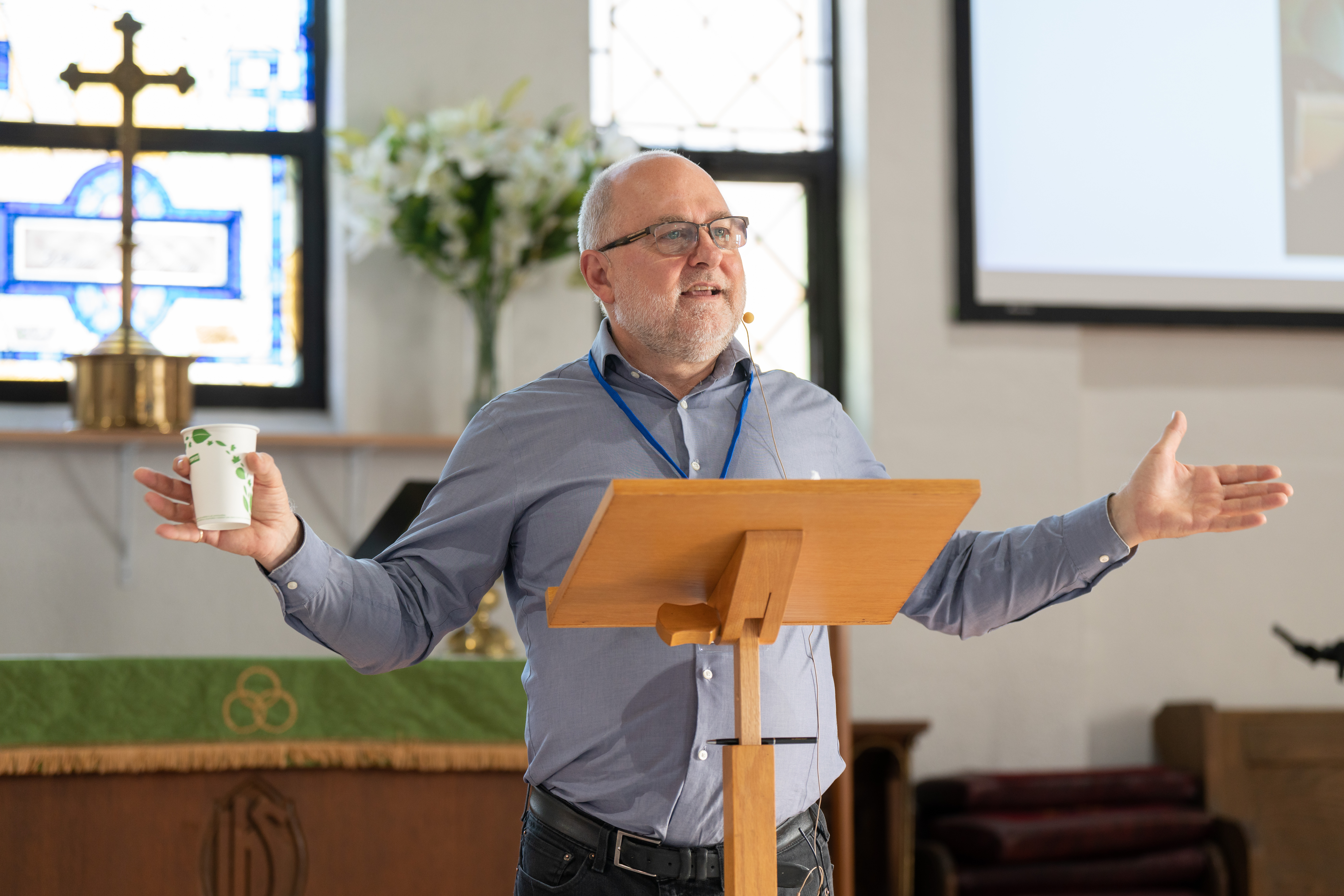The more things change, the more they stay the same. That is to say, the more people I talk to who are practitioners in missional ministry and Church, the same message comes through repeatedly: love your neighbours. This is the pathway for the Church now in this pandemic time we are in. As the religious landscape in Canada changes for ever and fewer people can be drawn to church by our Sunday morning offerings, there is a pathway to life and meaning for our churches which is older than the Church itself. It lies in learning to love our neighbours, the people who live all around our congregations.
We have been writing about the Environics maps we commissioned for the Diocese. These provide a powerful glimpse into the lives and lifestyles of the people who live around our Churches. We would love to come and show this to you and think more about what it might mean for your church. This helps us move from assumptions about people to seeing the facts on the ground.
But then comes the real work with the very real people who live around us. Who are they? What do they care about? How can we love them? How do they want to be served? These are the question we must now ask.
This is what the event sponsored by Montreal Dio was about: Congregational Ministry in a Pandemic-Shaped World. The conference, organized by Montreal Dio, was hosted by the Church of St Mark and St Peter in St Laurent. And the speaker posed a necessary question: now what?
The speaker was Pastor Tim Dickau, formerly of Grandview Church in Vancouver, who told us about his experience of re-focussing the congregational life on serving in the neighbourhood.
He took seriously the call to love of neighbour and began to shift the focus of the congregation from going to Church to being the Church in and for the neighbourhood. It is this shift in practise that all our congregations can think about and work on now.
Shaped by the Pandemic
There is no question that the Pandemic has had a profound impact upon churches everywhere. If nothing else, COVID-19 has, once and for all, finished off the attractional model of Church.
This trend has been in motion for many years – which is why we have been talking about the importance of mission, being missional. Now the time has arrived in which mission is what lies before us to bring new life to our Churches.
The trends in religious observance throughout Canada have not favoured us for many years. There is a growing diversity of religious and spiritual expression, and an increasing number of those who claim no religious belief. This can seem threatening to us if we continue to try to attract people to Church on Sunday. There simply are not enough people looking for that kind of worship. Immigration trends favour other religions.
If doing the same thing is yielding fewer and fewer results for us, let’s do something different now. Let us embrace that alternative that lies before us: mission. Your mission-field are the people who live and work around your Church. Try to understand them, listen to them and above all, serve them.
This is the message of Pastor Tim Dickau, formerly of Grandview Church in Vancouver who was the speaker at the event sponsored by the Montreal Diocesan Theological College on October 29th.
Tim took a dying Baptist church in the East side of Vancouver and did not turn it into mega-church. But he did bring about a new orientation towards making a difference in the Grandview neighbourhood. In doing so, over time new vitality and purpose came to this congregation and with it new life.
It sounds very simple and, in a way, it is. But it takes work
and a shift in our thinking. If they could do this, so can you.
Being the Church
We have not been to Church we ARE the Church! We all recognise how important this is, but it is more than a form of words. It involves looking and listening to what is going on in the neighbourhoods around us. When we look at the people who live there from the point of view of attracting them to a liturgy, we can end up in the dead end of trying to tweak the Sunday morning event in a desperate attempt to make it somehow more…attractive! We can despair because people just aren’t interested in Church anymore. In extreme cases we can turn in on ourselves and become hostile to the society in which we live. But none of this is helpful.
Better to think about our neighbourhoods and the many diverse people who live there and ask: what do they care about, what might their needs be?
This is the story Pastor Tim Dickau told about Grandview Church in Vancouver. Embracing the challenge of mission, it became their purpose to transition from going to Church to being the Church in and for the neighbourhood. Over time this shift in focus brought about a new direction and new vitality to the Church which both touched the neighbourhood and changed Grandview Church too.
A Porous Church
People still will ask: yes, but when will they come to Church? There is no clear answer to that question. But if we will embrace mission and service to give life to our Churches, then we may just find our congregations becoming more like the people who live around us. We might just become a more porous church.
I find the vision statement of Grandview Church quite telling in this regard: A community of people who receive and extend the generous welcome of God. This comes out of the lived experience of the congregation in and for the neighbourhood rather than from the denominational background of the Church. Rather than raising high doctrinal or liturgical boundaries, this opens a wide circle.
Because the missional question begins with who is my neighbour and then moves to and how can we serve them but then we need to add and how do they want to be loved?
This is how we move from attractional Church, into mission and service. Instead of doing things for people we learn to do things with. We move beyond what we think people might want and connect with what is happening all around us. In this way, the Church can find true relevance and make a difference in people’s lives.
What is next? First you could consult the Environics maps to connect with what IS in your community. Then start prayer-walking your neighbourhood. Ask God a simple question: Who are our neighbours and how can we serve them? Pray and pray again.


